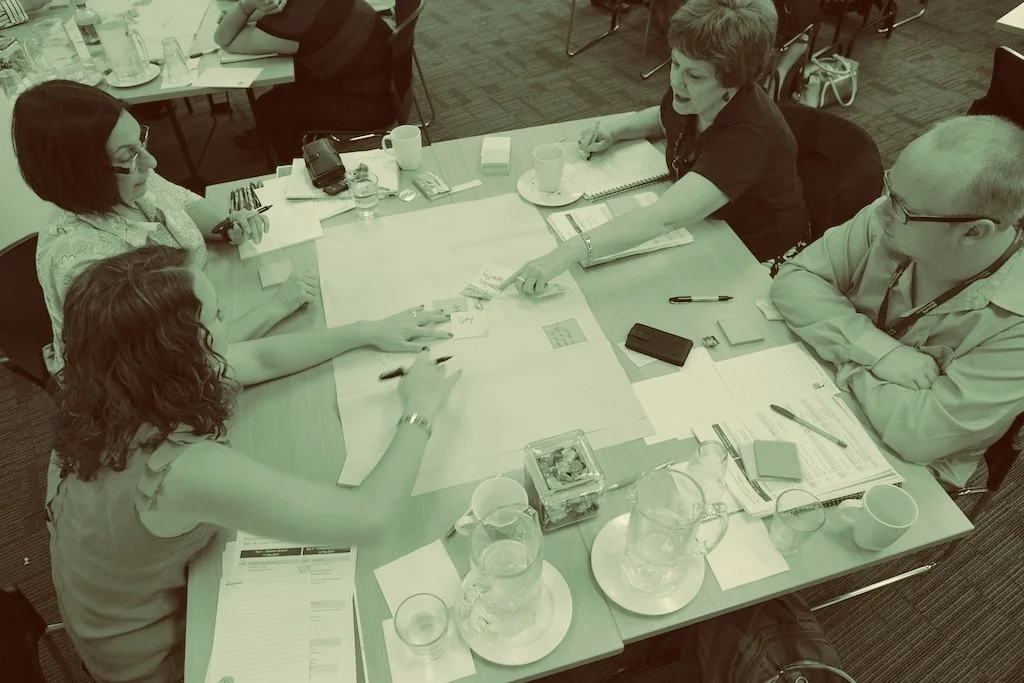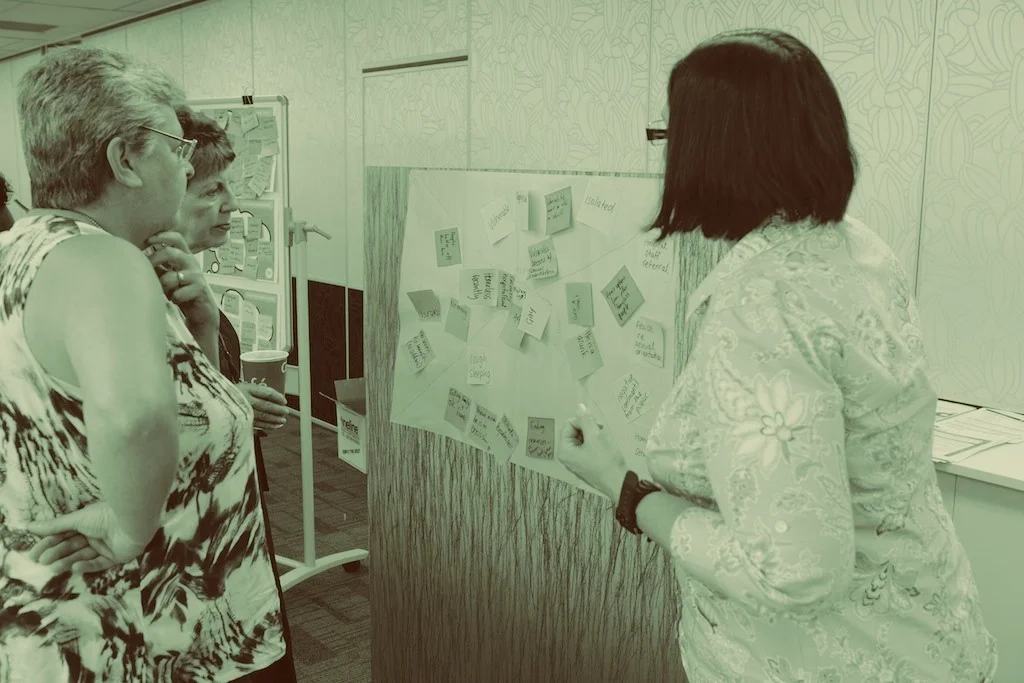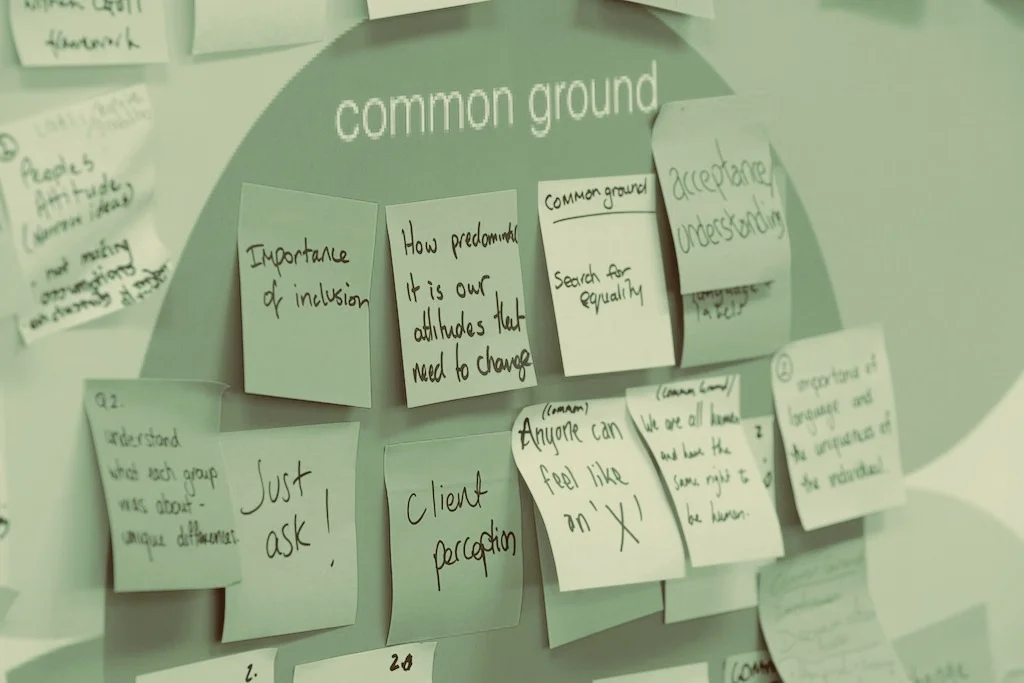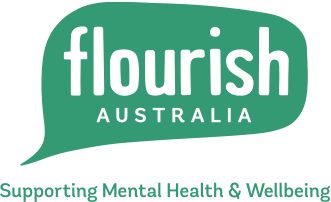





Module 4
Introduction to people with disability and mental health
Module 4
Introduction to people with disability and mental health
ABOUT THIS MODULE
Welcome to Flourish Australia’s introductory module on people with disability and mental health issues.
This module is an introduction and does not replace the need for more extensive training on working with people with disabilities in mental health contexts.
Staff are therefore encouraged to do further research and professional development in this area to fully inform their practice at Flourish Australia.
This module has 4 sections along with associated activities, external links and resources:
- Section 4.1 The social model of disability
- Section 4.2 Understanding service barriers
- Section 4.3 The National Disability Insurance Scheme and your role
- Section 4.4 Choice and control: the implications
ABOUT THE PRESENTER
Barbel Winter
Barbel Winter is the Managing Director of Futures Upfront, a company working to build inclusive communities. With more than 20 years experience in the disability, mental health and community sector, Barbel has built a strong reputation in Australia and New Zealand as a thought leader in personalisation, diversity management and consumer driven service delivery.
Barbel will be sharing key insights into how we engage with disability issues and prepare for changing frameworks as a result of the National Disability Insurance Scheme.

Section 4.1
The social model of disability
Section 4.1
The social model of disability
Barbel Winter introduces herself and some key data around disability.
SELF REFLECTION
Now consider:
- What is a disability?
- What does it mean to you?
Now compare your response with those in this clip where Barbel Winter discusses what a disability is.
Understanding what is disability depends on how we frame disability. Barbel Winter discusses the social model of disability and the impact of how we frame disability.
The social model of disability, as defined by People with Disability Australia, therefore supports the view that people with disability have a right to be fully participating citizens on an equal basis with others and hence seeks to change society in order to accommodate people living with impairment.

Section 4.2
Understanding service barriers
Section 4.2
Understanding service barriers
SELF REFLECTION
Consider:
In your day-to-day practice, what do you think discriminates against people with disabilities?
Compare your response with potential barriers as identified by Barbel.

Section 4.3
The National Disability Insurance Scheme and your role
Section 4.3
The National Disability Insurance Scheme and your role
Barbel introduces some fundamental shifts happening in the disability sector that includes shifts from
- welfare to rights
- block funding to individualised funding
- handout to entitlement
NATIONAL DISABILITY INSURANCE SCHEME
The National Disability Insurance Scheme (NDIS) is about providing community linking and individualised support for people with permanent and significant disability, their families and carers.
It is an insurance scheme that assists people with disability (including people with mental health issues) access mainstream and community supports, helps support informal care and funds reasonable and necessary supports, including early intervention supports, for its participants.
The Scheme will enable NDIS participants to exercise choice and control in the pursuit of their goals and the planning and delivery of their supports.
Further information about the NDIS can be found at the NDIS website:
NATIONAL DISABILITY STRATEGY
The National Disability Strategy 2010-2020 sets out a ten year national policy framework for improving life for Australians with disability, their families and carers. It is based on the belief that all Australians should have fair and equal access to the full range of mainstream programs and services available.
The Strategy has six priority areas for action:
Inclusive and accessible communities
Rights protection, justice and legislation
Economic security
Personal and community support
Learning and skills
Health and wellbeing
Further information about the National Disability Strategy can be found here:
SELF REFLECTION
After watching the video above and reading the resource, consider:
What are the major changes happening in your sector as a result of the NDIS and what are the implications for your practice?

Section 4.4
Choice and control: the implications
Section 4.4
Choice and control: the implications
In closing Barbel explains some key approaches that you can incorporate into your practice to enable more choice and control for people with disabilities. These include:
- Letting go of assumptions
- Letting go of being the expert
- Listening to what is possible
ADDITIONAL RESOURCES
Barbel Winter of Futures Upfront has put together a starter kit of relevant disability resources that provide further information and support when working with people with disabilities, including those with intellectual disability and mental health.
SELF REFLECTION
Consider:
- What ideas can you take from this module to start implementing in your service?
- What next steps can you take to improve disability inclusive practice in your service?






